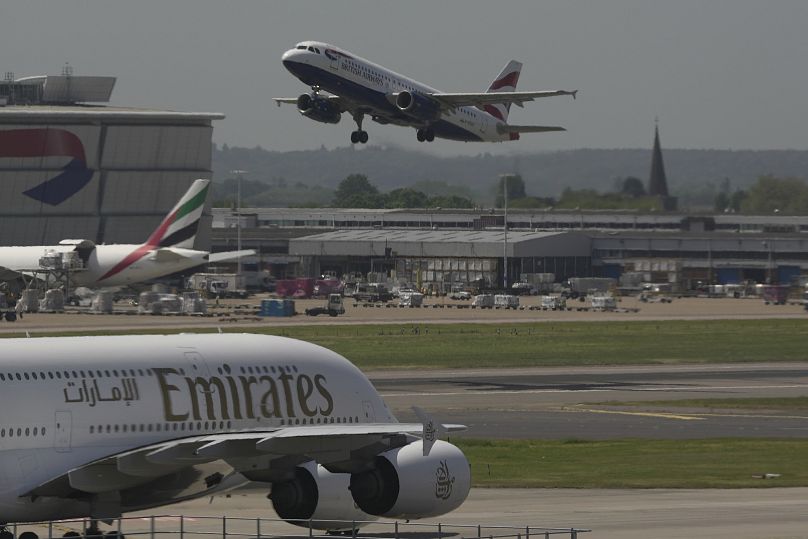A report from official government advisers has criticised slow progress and the approval of new oil and gas projects.
The UK has “lost” its status as a global climate leader, according to official government advisers.
 ADVERTISEMENT
ADVERTISEMENT
 ADVERTISEMENT
ADVERTISEMENT
A damning progress report from the Climate Change Committee (CCC) said on Wednesday that the country is now at serious risk of missing many of its climate goals.
The UK set legally binding targets in 2019 to cut greenhouse gases to zero by 2050. This means it can’t emit new greenhouse gases into the atmosphere past this date.
But the report found that “continued delays” in policy making and implementation mean reaching climate goals is “increasingly challenging”.
The CCC also said there was a “lack of urgency” across the UK government with ministers showing a “worrying hesitancy” to lead on climate issues.
Targets missed on almost every front
Greenhouse gas emissions in the UK have fallen by 46 per cent since 1990, according to the CCC report.
On top of 2050 greenhouse gas targets, at COP26 in 2021 then Prime Minister Boris Johnson vowed to cut emissions by 68 per cent by 2030. To reach this target, the country would now need to quadruple its annual emissions cuts from sources outside of the electricity sector.
In December last year, the UK also approved its first new deep coal mine in 30 years. A new oil field off the coast of Scotland, which would produce 300 million barrels of oil in its lifetime, is also expected to be greenlit in the near future.
The CCC also issued several other warnings, including that the UK can’t expand any of its airports without closing or shrinking what it already has.
The number of homes receiving energy efficiency upgrades more than halved from 2021 to 2022. Emissions from transport have also remained high and there is no concrete plan to decarbonise industries like steel production.
New wind and solar projects as well as upgrades to the electricity grid were also found to be too slow to meet the net zero emissions goal.
The report shows targets and key opportunities have been missed on a number of climate fronts.
How have politicians and advisers responded to the report?
Outgoing chair of the committee Lord Deben said that the UK had “lost the leadership” in climate action that was fostered at COP26.
Calling plans for new oil and gas fields in the North Sea “utterly unacceptable”, he added that the CCC’s confidence in the government meeting its emissions-cutting goals was now even lower than it was last year.
Responding to criticism of new oil and gas projects, Minister of State for Energy Security and Net Zero Graham Stuart told journalists that the UK would remain dependent on fossil fuels in the near future.
“There is no button I can press tomorrow, and as we will be dependent on oil and gas for decades to come, even as we move to net zero, it makes sense that we should produce it here.”
Alok Sharma, president of COP26, said on Twitter that the UK’s climate targets ahead of the UN climate summit in 2021 had ensured that the country was able to “persuade others to be more ambitious”.
But, he added, without a “redoubled effort” on delivery, the UK could fall short of these targets and risk giving up its "hard won international reputation and influence of climate”.
Sharma said that one “quick win” would be a reform of planning rules to allow new onshore wind farms to be built as they are “the cheapest form of energy available”.
What does the CCC say needs to be done?
While the CCC report acknowledged that growing sales of electric cars and the rise in renewable power showed some hope, there is still plenty to be done.
The UK needs to encourage people to make changes like installing heat pumps, insulating their homes, eating less meat or flying less, according to the report. But the government continues to rely on technological solutions that have yet to be tested at scale instead of more straightforward ways to encourage low-carbon choices.
It recommends that more trees need to be planted and peatlands protected. Progress in other areas, like the transition to green energy and roll-out of low-carbon heating, also needs to be sped up.
“A more realistic approach to delivery is needed,” the report says. “This cannot wait until after the next General Election.”











